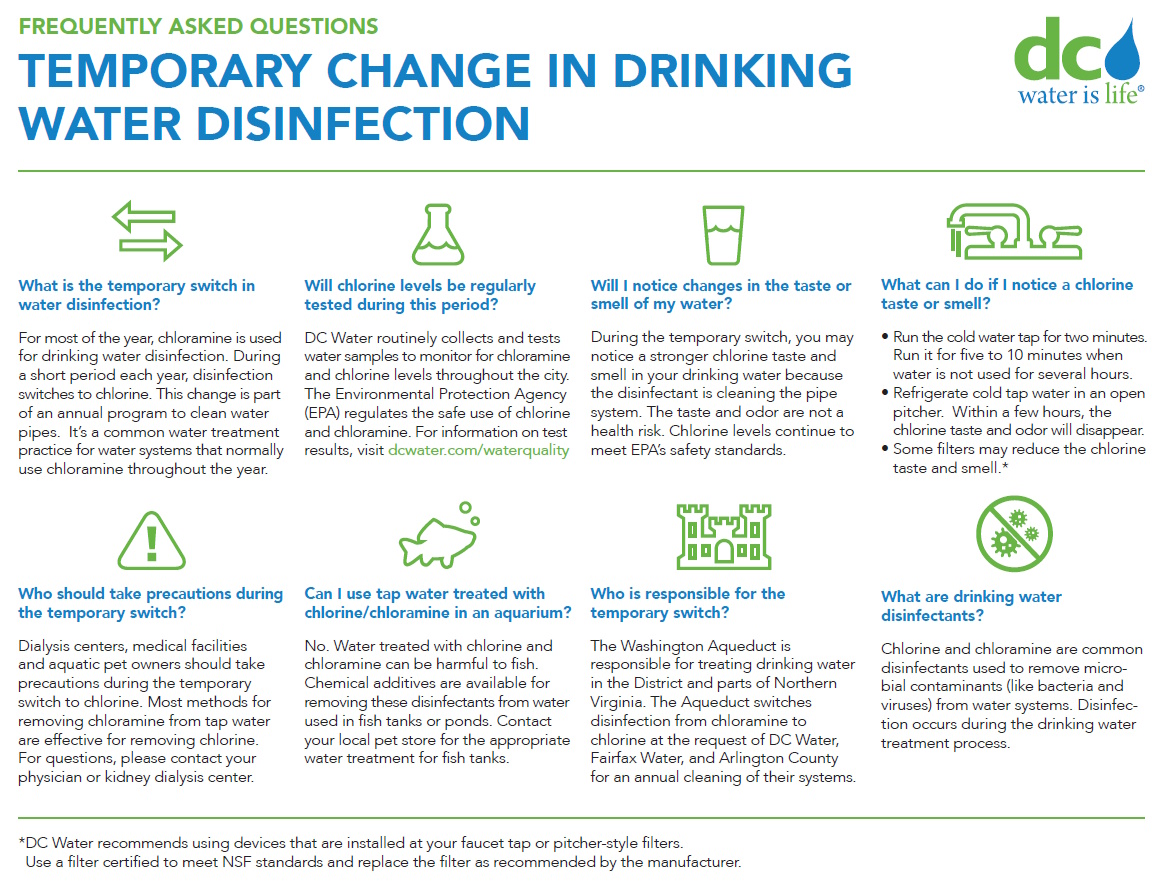From March 24 through May 5, 2025, the disinfectant in drinking water will temporarily switch from chloramine to chlorine. During this time, you may notice a slight change in the taste and smell of your drinking water.
DC Water purchases treated drinking water from the Washington Aqueduct. Each year, the Aqueduct switches disinfectants from chloramine back to chlorine to clean our water distribution system and improve water quality. During the temporary switch, DC Water will also conduct system-wide hydrant flushing (opening hydrants in a sequence that pulls the water through the mains) to enhance water quality. This program is a common practice for many U.S. water systems that normally use chloramine throughout the year. The Washington Aqueduct will continue to add a corrosion control inhibitor during this temporary switch to prevent lead release.
DC Water routinely collects and tests water samples to monitor for chloramine and chlorine levels throughout the city and will continue to do so during this period. You can view the latest test results here. The Environmental Protection Agency (EPA) regulates the safe use of chlorine and chloramine.
To reduce the taste or smell of chlorine, DC Water recommends:
- Run the cold water tap for two minutes. Run it for five to 10 minutes when water is not used for several hours.
- Refrigerate cold tap water in an open pitcher. Within a few hours, the chlorine taste and odor will disappear.
- Some filters may reduce the chlorine taste and smell. DC Water recommends using devices that are installed at your faucet tap or pitcher-style filters. Use a filter certified to meet NSF standards and replace the filter as recommended by the manufacturer
Individuals and business owners who take special precautions to remove chloramine from tap water, such as dialysis centers, medical facilities and aquatic pet owners, should continue to take the same precautions during the temporary switch to chlorine. Most methods for removing chloramine from tap water are effective in removing chlorine. Individuals with special health concerns should consult a health care provider on the use of tap water.
For more information, please review our FAQ or contact the Drinking Water Division at (202) 612-3440 (Monday-Friday, 8:00 a.m. - 4:30 p.m.) or 202-612-3400 (24-hour).
Download and print our FAQ for the home or office:




